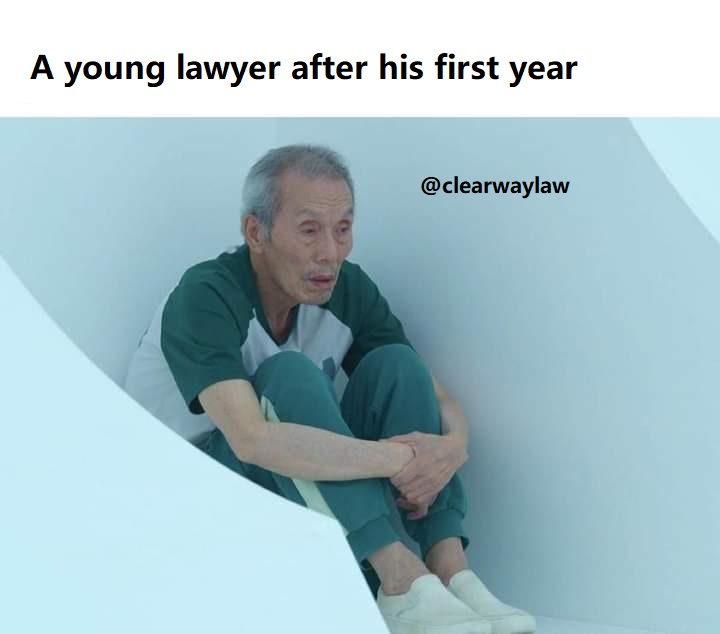The Sovereign Citizen Movement is a patchwork of beliefs, customs, and rituals, with roots deep in American history. Its participants insist they’re merely “free inhabitants,” rejecting the title “U.S. citizens”. Their number is estimated by the Southern Poverty Law Center to be about 300,000 as of 2011, a figure potentially far higher now.
Sovereign Citizens argue that the U.S. government, as we know it, is a corporate entity, separate from the “organic” American nation. Their belief hinges on legal technicalities and obscure documents, interpreting them in ways outside mainstream understanding.
If you have questions about how Sovereign Citizens can be treated in court, you can reach out to this lawyer who focuses on human rights. Use their contact form.
A widely accepted claim among Sovereign Citizens is the existence of a secret U.S. Treasury account for each person. This account, they suggest, becomes active upon the creation of a birth certificate. Critics, however, say such beliefs are groundless, with no legal or historical basis.

Defining Sovereign Citizens: The Law’s Perspective
Income tax evasion, refusal to hold a driver’s license, and avoidance of court appearances characterize Sovereign Citizens’ rejection of federal laws. FBI data reveals that between 2000 and 2010, over 1000 cases of tax evasion were tied to the movement.
Courts are arenas of conflict, with Sovereign Citizens often resorting to “paper terrorism,” flooding the system with frivolous lawsuits and liens, creating havoc.
In a 2014 survey by the National Consortium for the Study of Terrorism and Responses to Terrorism, Sovereign Citizens topped the list of U.S. law enforcement’s concerns, surpassing Islamic extremists and militia groups. Their resistance to regulation extends to local ordinances too, such as zoning restrictions or building codes.
Understanding this movement requires a nuanced look at American history. Many adherents argue the shift from the Articles of Confederation to the Constitution in 1787 was illegal. They maintain that certain amendments, particularly the 14th and 16th, are invalid, even though legal experts and historians overwhelmingly disagree.
The Legal Interpretation of a Sovereign Citizen
In some circles, the Sovereign Citizen Movement has merged with other fringe ideologies, notably conspiracy theories like QAnon. The Anti-Defamation League reported in 2020 that instances of cross-pollination between such groups were on the rise, increasing the likelihood of violent outcomes.
Engaging with Sovereign Citizens is a challenge for law enforcement. Standard negotiation techniques often fail, given the members’ resistance to recognized authorities.
A 2015 Police Executive Research Forum study found officers trained in de-escalation techniques fared better during encounters, reducing instances of violence.
Sovereign Citizens and the Law: An Insightful Overview
Though Sovereign Citizens are spread across the country, their presence is notably stronger in some regions. The Southern Poverty Law Center highlighted Florida, Texas, and California as having high concentrations. Still, despite their dispersion, communication technology aids in disseminating their doctrine.
The Sovereign Citizen Movement remains an enigma to many. Their interpretation of laws and history is unconventional and often erroneous by standard scholarly measures. Their firm conviction and increasing numbers, however, warrant a closer look at this complex and confounding movement.
Lawsuits Involving Sovereign Citizens
The sovereign citizen movement, notorious for its resistance to governmental authority, has been at the forefront of countless news headlines. This resistance often leads to legal battles that capture national attention.
In particular, two cases serve to highlight the drama and complexity surrounding this movement: the Timothy Broughton case in 2013 and the Jerry Kane Jr. and Joseph Kane case in 2010.
Timothy Broughton, a self-proclaimed sovereign citizen, was thrust into the limelight in 2013. Broughton was indicted in Nashville for charges including mail fraud, mortgage fraud, and money laundering. Broughton’s dispute wasn’t mundane.

Understanding Sovereign Citizenship Through Legal Lenses
His defence was an outright rejection of the court’s authority, a staple of the sovereign citizen belief system. Broughton claimed he was a “living soul,” a private individual outside the court’s jurisdiction.
His case hinged on the ideology that American law only applies to legal entities, not human beings. This paradoxical argument was ultimately dismissed by the court. Broughton was sentenced to 20 years in prison in 2014, a significant statement against the defiance of federal authority.
While Broughton’s case was marked by his audacious defence, the case of Jerry Kane Jr. and his son Joseph Kane in 2010 unfolded in a much more violent fashion.
What Does the Law Say About Sovereign Citizens?
The Kanes, also self-proclaimed sovereign citizens, were involved in a tragic shootout with police in West Memphis, Arkansas. This fatal encounter was a direct result of their firm adherence to the sovereign citizen ideology.
The incident began when the Kanes were pulled over in a routine traffic stop. It quickly escalated as Joseph, a mere 16-year-old, opened fire on the officers. Both officers died on the scene.
The Kanes, on the run, was later cornered in a Walmart parking lot. There, another shootout ensued, culminating in their deaths.
300,000 sovereign citizens in the U.S.
The Kane case was a stark reminder of the potential danger of the sovereign citizen movement. Statistics from the Southern Poverty Law Center estimate that there are approximately 300,000 sovereign citizens in the U.S. as of 2021, a significant increase from the 100,000 estimate in 2011.
Broughton and the Kanes’ cases share common themes of denial, resistance, and an unwavering belief in personal sovereignty. They underline the escalating legal battles faced by authorities against the sovereign citizen movement.
A domestic terrorism threat
While these cases made national headlines, they are just the tip of the iceberg. The FBI has classified the sovereign citizen movement as a domestic terrorism threat.
This classification is backed by a 2014 survey of U.S. law enforcement, which ranked the sovereign citizen movement as the top concern, surpassing Islamist terrorism and militia/patriot groups.
The cases of Broughton and the Kanes demonstrate the profound implications of the sovereign citizen ideology on legal disputes. Their stories represent an ongoing national struggle to reconcile individual beliefs with collective law and order.


